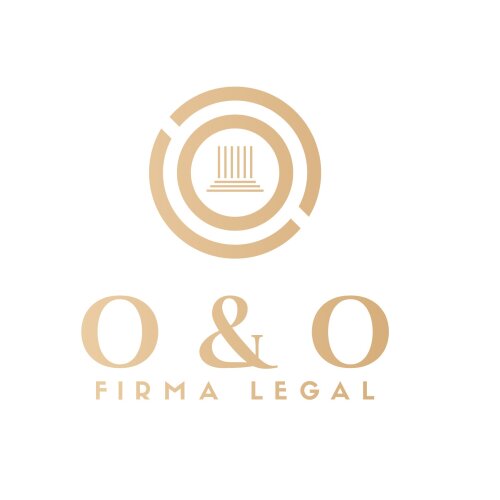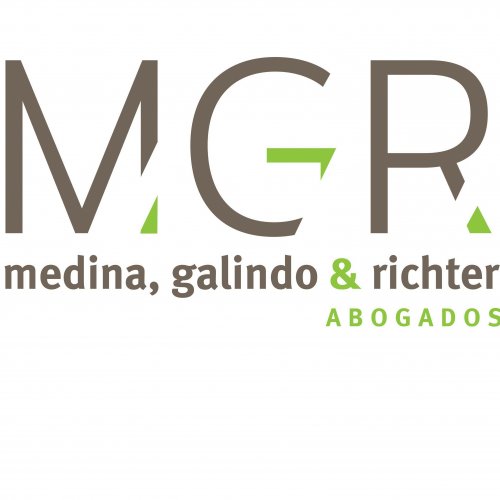Best Conveyancing Lawyers in La Paz
Share your needs with us, get contacted by law firms.
Free. Takes 2 min.
Free Guide to Hiring a Real Estate Lawyer
List of the best lawyers in La Paz, Bolivia
About Conveyancing Law in La Paz, Bolivia
Conveyancing in La Paz, Bolivia, refers to the legal procedures involved in the transfer of property ownership from one party to another. This process is vital whether you are buying, selling, or inheriting real estate. The Bolivian legal system regulates these transactions through a series of steps that ensure the lawful transfer and secure ownership rights. An efficient conveyancing process protects both buyers and sellers and mitigates the risk of future disputes.
Why You May Need a Lawyer
Engaging a lawyer is highly recommended during conveyancing due to the intricacy of Bolivian property law and the importance of proper documentation. Common situations requiring legal assistance include:
- Purchasing or selling property
- Transferring property to family members
- Resolving disputes over land or real estate
- Dealing with property inheritance
- Addressing discrepancies in property boundaries or deeds
- Ensuring compliance with municipal and national regulations
- Securing permits and approvals for construction or renovation
An experienced lawyer can help prevent costly mistakes, clarify your legal rights, and guide you through each step of the process.
Local Laws Overview
The conveyancing process in La Paz is largely governed by the Bolivian Civil Code and municipal regulations. Notable elements include:
- All property transactions must be formalized in a public deed before a notary public
- Properties must have clear and updated registration in the Derechos Reales (Public Registry of Property Rights)
- A due diligence process is mandatory to ensure there are no outstanding debts, encumbrances, or legal disputes attached to the property
- Municipal taxes, transfer fees, and registration charges must be paid prior to completing the transfer
- Foreigners can acquire property, but must comply with specific regulations concerning rural, border, or protected lands
- Inheritance and family law can affect property rights, especially in cases where multiple heirs are involved
Failure to follow these laws can result in invalid transfers or future legal complications. Legal advice helps ensure every legal requirement is met.
Frequently Asked Questions
What is the first step in buying property in La Paz, Bolivia?
The first step is to engage a lawyer or real estate professional to conduct due diligence, ensuring the property has a clear title and no legal disputes or outstanding debts.
What documents do I need for conveyancing?
You will need the property's title, the seller's identification documents, a municipal property tax certificate, proof of payment for any outstanding taxes, and documentation of property boundaries and registration.
Are foreigners allowed to buy property in La Paz?
Yes, foreigners can purchase property in La Paz, but there are restrictions on land located in border areas or classified as rural or protected by law.
How long does the conveyancing process usually take?
The timeframe depends on the complexity of the transaction, but typically ranges from a few weeks to several months, especially if there are issues with documentation or inheritance.
Is the involvement of a public notary required?
Yes, all property transfers must be formalized through a public deed signed before a notary public in Bolivia. This ensures legal validity and registration.
What are common problems that can occur during conveyancing?
Issues include unclear property titles, pending debts or mortgages, boundary disputes, unregistered extensions, or inheritance claims from multiple heirs.
What taxes and fees apply to property transfers?
Taxes include the property transfer tax, notary fees, municipal registration fees, and sometimes real estate agent commissions. Your lawyer will provide an exact breakdown.
Can I handle conveyancing without a lawyer?
While it is legally possible to proceed without a lawyer, it is not recommended due to the complex laws and high risk of costly mistakes or legal complications.
How are inheritance rights handled in conveyancing?
Inheritance cases must be processed through probate to confirm legal heirs. Only after this can property be transferred or sold. Multiple heirs can complicate the process.
What happens if a dispute arises after the transfer?
If a legal dispute occurs, parties can take the case to local courts. Having legal assistance from the beginning helps prevent and resolve disputes more efficiently.
Additional Resources
If you need more information, the following resources and organizations may be helpful:
- Oficina de Derechos Reales - Responsible for property registration and title information
- Colegio de Abogados de La Paz - The local bar association for guidance on accredited lawyers
- Municipalidad de La Paz (City Hall) - For information on municipal permits, taxes, and property boundaries
- Ministry of Justice and Institutional Transparency - For updated legal frameworks and guidance on conveyancing laws
Next Steps
If you are considering buying, selling, or transferring property in La Paz, Bolivia, start by consulting a local lawyer specializing in real estate. Gather all available documentation concerning your property or the property you wish to acquire. Ask your lawyer to conduct a thorough title check, verify the registration with Derechos Reales, and advise you on tax obligations and legal requirements specific to your case. Scheduling an initial legal consultation can clarify your situation and help you proceed with confidence. Always ensure all transactions are documented and formalized through a public notary to guarantee your rights and compliance with local law.
Lawzana helps you find the best lawyers and law firms in La Paz through a curated and pre-screened list of qualified legal professionals. Our platform offers rankings and detailed profiles of attorneys and law firms, allowing you to compare based on practice areas, including Conveyancing, experience, and client feedback.
Each profile includes a description of the firm's areas of practice, client reviews, team members and partners, year of establishment, spoken languages, office locations, contact information, social media presence, and any published articles or resources. Most firms on our platform speak English and are experienced in both local and international legal matters.
Get a quote from top-rated law firms in La Paz, Bolivia — quickly, securely, and without unnecessary hassle.
Disclaimer:
The information provided on this page is for general informational purposes only and does not constitute legal advice. While we strive to ensure the accuracy and relevance of the content, legal information may change over time, and interpretations of the law can vary. You should always consult with a qualified legal professional for advice specific to your situation.
We disclaim all liability for actions taken or not taken based on the content of this page. If you believe any information is incorrect or outdated, please contact us, and we will review and update it where appropriate.










